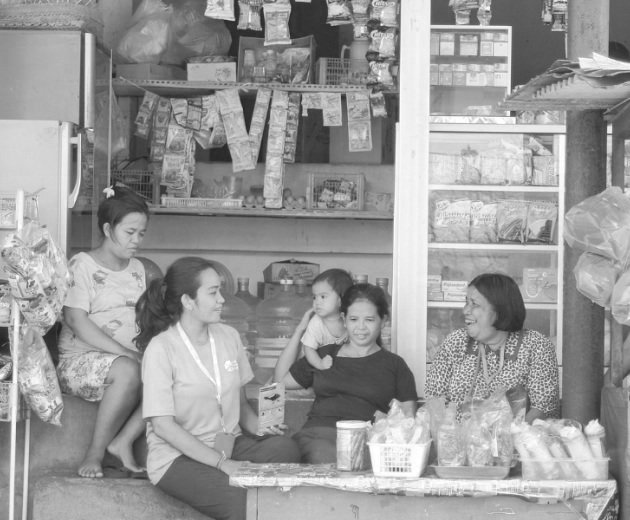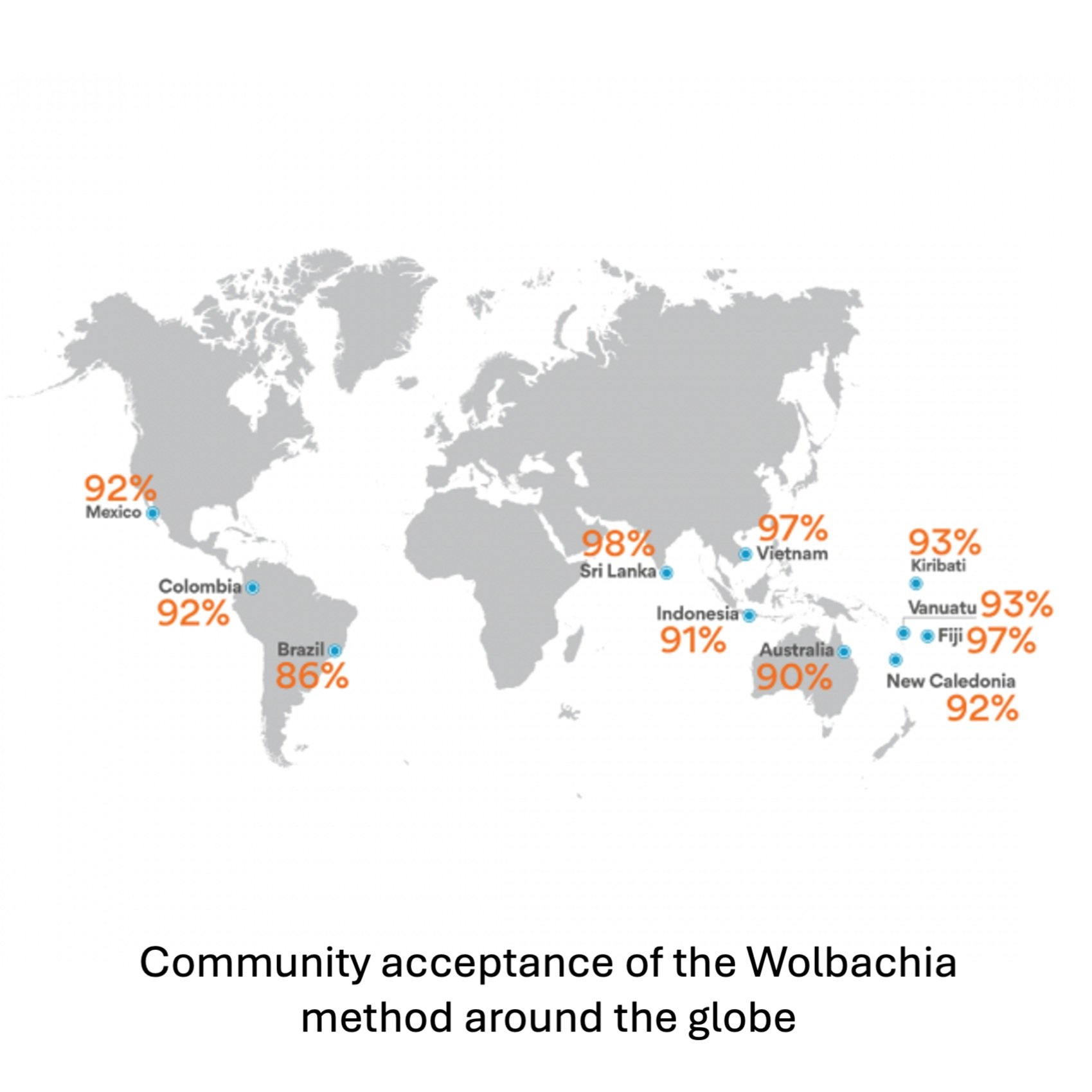Case Study
De-risking the release of dengue-fighting mozzies around the world
The Problem:
A Gates Foundation-backed Wolbachia biotech research project, the World Mosquito Program (WMP), needed to reduce its social risk around releasing mosquitoes infected with the Wolbachia bacterium into people's back yards as part of the global effort to eliminate Dengue Fever.
This was easy at the early trial stage where knocking on people's doors to ask them for consent was sufficient. But successful trials meant WMP needed to scale this consent and be confident they had community support at a whole-of-city level - millions of backyards - across the Equatorial zones where dengue is the greatest threat.
They needed to respond to fears about engineered mosquitoes and opponents to the technology and know how the host community felt about the proposed mosquito releases at sufficient resolution to allow targeted and effective responses by WMP if and when public issues arise.
The Response:
Pax Populus designed a Public Acceptance Model (PAM), which was built on the foundation of the WMP's Public Participation Principles.
This used a highly effective program of quantitative and qualitative social research and public education to inform deliberations of a local, independent Community Reference Group.
A local mosquito release would not proceed until this group gave the go-ahead, creating a key trust-building device for both the host community and the WMP.
The Outcome
The PAM is now used by WMP in 80 countries around the world as testament to its robust design.
It bridged the WMP to the tipping point of widespread acceptance of the biotechnology.
This put it in a much a much stronger position to respond quickly to the emerging threat of dengue and other Aedes-transmitted arboviruses spreading to more areas as climate change expands suitable Aedes mosquito habitat, putting even more human populations at risk of mosquito-borne disease.



